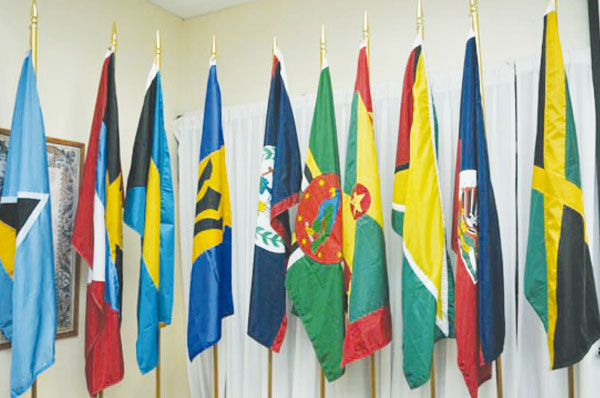PRESS RELEASE – Regional trainers develop skills to train others in research methodology
Training seminars that build the capacity of public servants and community representatives in data collection on multi-dimensional poverty are currently being held in select OECS Member States.
The OECS Commission, in collaboration with the United Nations Development Programme’s (UNDP) Sub-regional Office for the OECS and Barbados, is conducting Training of Trainer Workshops in Participatory Action Research on multi-dimensional poverty.
The initiative, which forms part of the Multi-Dimensional Approaches to Poverty Eradication Project (MDAPP), has successfully completed training in St. Vincent and the Grenadines, Grenada and Antigua and Barbuda. Additional training sessions are scheduled to continue in Dominica and St. Lucia in the weeks to come.
UNDP Project Coordinator at the OECS Commission, Dr. Julie Xavier, said the MDAPP intends to leave each project country with trainers who will be equipped with the skills to train others in the implementation of this research methodology. Participants were targeted from various social service ministries, as well as Departments of Statistics.
Project Coordinator at Grenada National Organisation of Women (GNOW) Jacqueline Pascal, said that despite her years of experience in the field as a researcher, the training highlighted areas for development.
“I have experience in doing research, both qualitative and quantitative, as well as interviewing techniques at the highest level. This gives a person a bit of complacency (with regards to) their knowledge base. But coming here, I have realised that I was on a learning curve as far as research is concerned,” Pascal said.
A participant from St. Vincent and the Grenadines commended the comprehensive nature of the new approach, stating that “participatory action research encourages community participation and ensures that some specific action comes out of the research.”
Overall, the project is aimed at promoting greater awareness of the multi-dimensional nature of poverty through the development of policies and programmes that move away from the traditional focus on income or employment, and underscore the importance of other dimensions of holistic human development, such as experiences in health, housing, education, and feelings of safety and security.
The MDAP project is sponsored by the Government of Chile through the Agency for International Cooperation and Development (AGCID).





![Simón Bolívar - Liberator of the Americas [Photo credit: Venezuelan Embassy]](https://thevoiceslu.com/wp-content/uploads/2025/12/Simon-Bolivar-feat-2-380x250.jpg)



